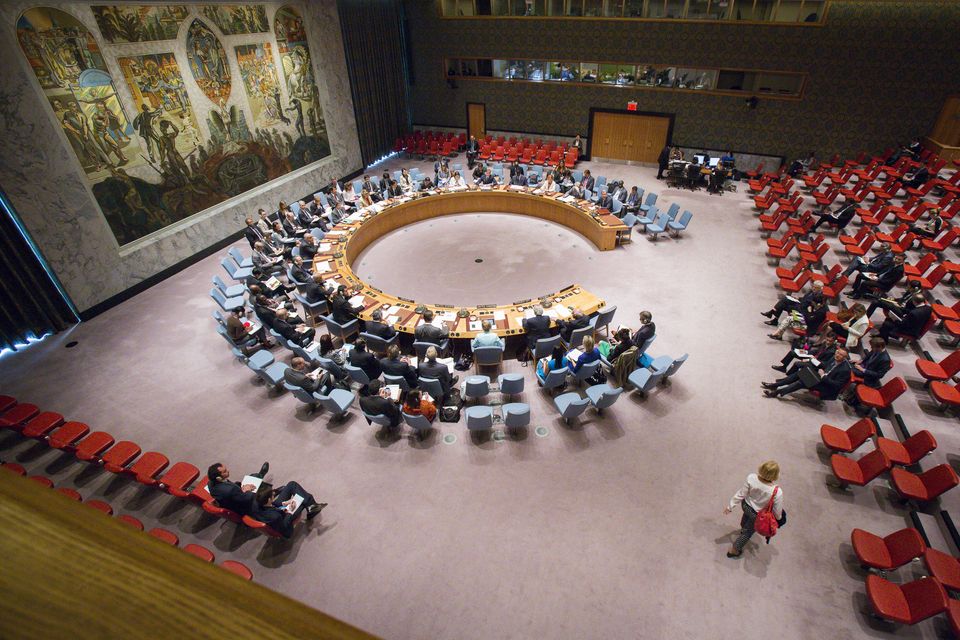Statement by the delegation of Ukraine at the UNSC debate on the work of International Criminal Tribunals

Check against delivery
Mr. President,
(8 June 2016)
I would like to warmly welcome Presidents Theodor Meron and Carmel Agius and Prosecutor Serge Brammertz and to thank them for their reports and comprehensive briefings. Let me express our support for your professional and dedicated service. I also wish to thank Ambassador of Uruguay for his work as Chair of the respective Security Council Working Group.
When in early 1990s the Security Council created two ad-hoc tribunals to try alleged perpetrators of genocide, war crimes, crimes against humanity, and other serious violations of international humanitarian law, they found themselves in largely unchartered waters.
The tribunals faced countless challenges, including the need to further develop international criminal jurisprudence, ensure compliance with international human rights standards to undergird legitimacy and credibility, address such issues as prosecuting senior officials and gathering evidence for crimes that occurred hundreds or even thousands of miles away, and many others.
Yet, the achievements of the tribunals in the fight against impunity and delivering justice to victims are remarkable, and — we can say this with confidence — they succeeded in accomplishing their mandates and in paving the way for a major change in the functioning of the international justice system.
Mr. President,
We welcome the closure of the International Criminal Tribunal for Rwanda on 31 December 2015 and the overtaking by the Mechanism for International Criminal Tribunals (MICT) of all its files. ICTY is also on the way to concluding its functions. We hail the tremendous work both institutions have accomplished and their invaluable contribution to the development of international criminal law.
We note with satisfaction ICTY’s significant progress in completing its work during the reporting period by delivering a number of judgments, including the recent conclusion of the trial of Radovan Karadzic. This decision is a clear evidence that those violating principles of international humanitarian law will be brought to justice sooner or later.
The number of ICTY concluded proceedings [151 out of 161 individuals] is a confirmation of the efficiency of the Tribunal. Taking into account that by the end of June 2016, only two trials and one appeal case will remain pending, we would like to express our gratitude to staff members of the Tribunal for their hard work and dedication.
In this context, we are concerned over the staff attrition as noted by the President of ICTY in his report and acknowledge the efforts by the Tribunal to resolve this issue. This problem is expected to become acute as the Tribunal approaches the end of its mandate. Thus we encourage the Tribunal to continue all measures to minimize the impact of this challenging situation on the ability to deliver justice.
We support the efforts of the Tribunal in implementing its completion strategy and following a timeline to finish its judicial work by the end of 2017.
We recognize the importance of regional and state cooperation to ensure that those responsible for crimes are held accountable and we support the activities of the Office of the Prosecutor in this regard. At the same time, we are concerned about the failure to execute arrest warrants and transfer three indictees to the Tribunal’s custody in violation of international obligations to cooperate with the Tribunal. The issue of regional cooperation as well as existing challenges with respect to national prosecutions of war crimes require special attention and monitoring by the Office of the Prosecutor.
As to the MICT, we note that it has assumed responsibility for a number of functions of the ICTR and the ICTY, including with regard to a range of judicial activities, the enforcement of sentences, the protection of victims and witnesses, and the management of archives. One of the main tasks now is ensuring a smooth transition of ICTY’s remaining functions. We support the work of the Mechanism in taking measures to improve operations, working methods and ensuring flexibility in staff assignment.
Mr. President
The establishment of the tribunals was a huge step forward in the fight against impunity. Their knowledge and expertise should not be wasted but used in handling of human rights crimes cases at national and international levels. The tribunals’ archives should be widely accessible. The lessons of the tribunals should also be used to increase national courts capacity.
I thank you.
